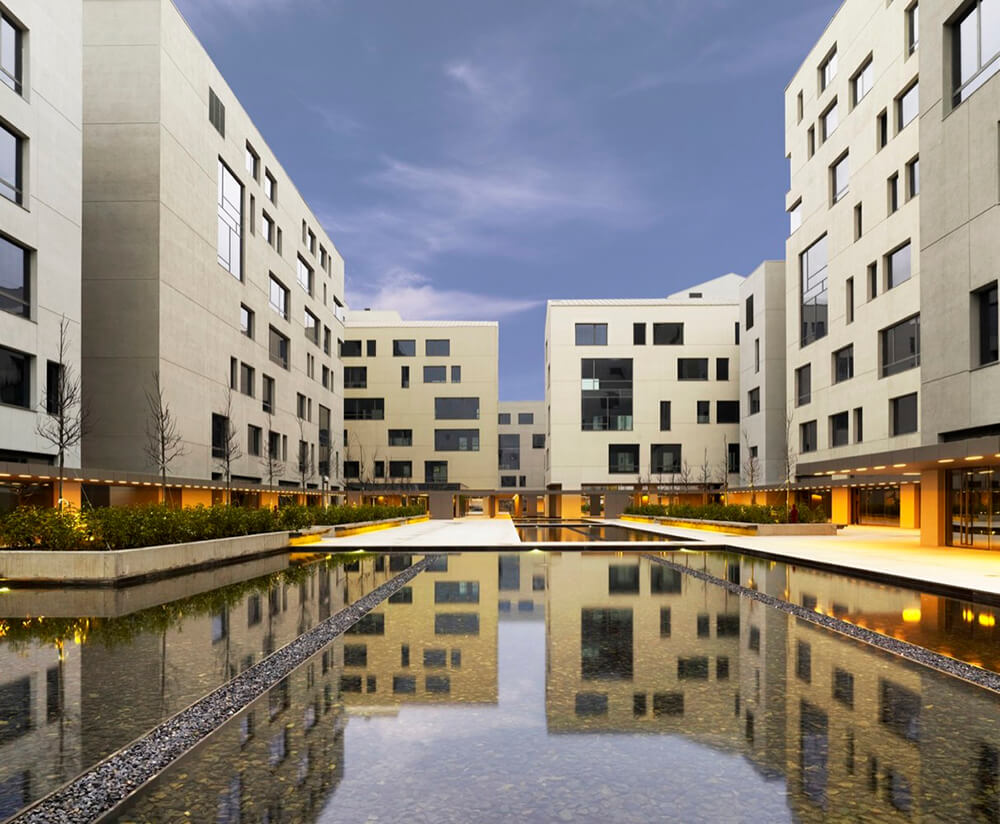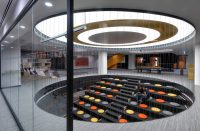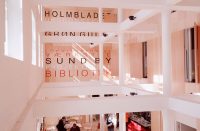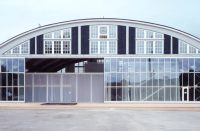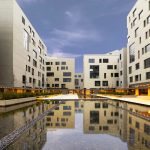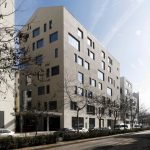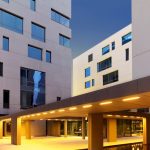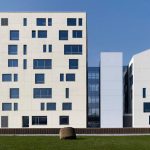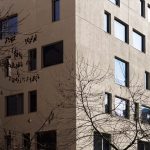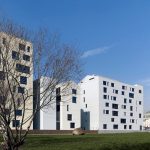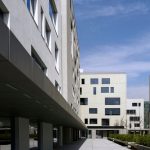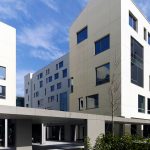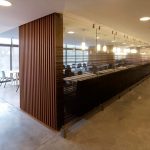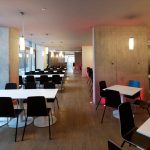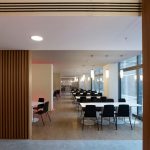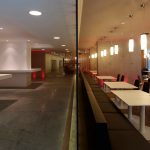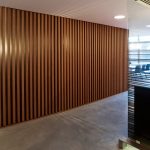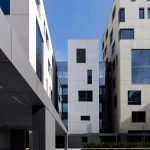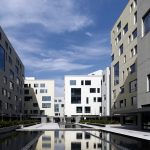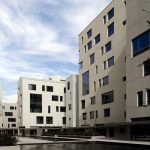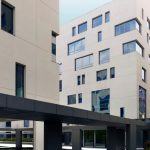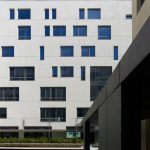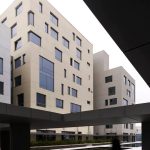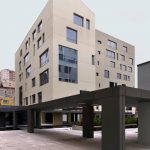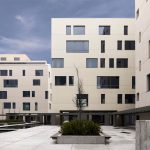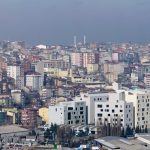Architect(s): EAA - Emre Arolat Architecture
Address: Merkez, Bağlar Cd. No:14, 34406 Kâğıthane, ISTANBUL, Turkey
Latitude/Longitude: 41.084886475878754,28.97362542147939
Tekfen Tower, a prominent investment that the group has made recently, is built on the Levent-Maslak axis on the Buyukdere Avenue which has transformed into Istanbul’s latest back bone of commerce. Both considering its architectural representation and its predicted and ongoing life inside, Tekfen Tower is a typical example of the generic office structures that were built at the end of the century.
It can be assumed that this structure which has highly competent qualities in terms of technological precision comparing it to its look-alikes, has been made independent from its surroundings with its sustainable technical and functional equipment. On the other hand, it would not be wrong to say that all of the structures that were built on this axis has been built with similar motivations. It can be easily claimed that the series that are composed of these structures which are built as closed islands and the meaningless voids that are left in between them, creates a profound urban deprivation.
The commercial axis that continues along the Buyukdere Avenue fades with the forest on the North of the Maslak region. The Boğaziçi region that is left on the east, is a residential district that has mostly reached its building capacity. A radical transformation in the near future in this region should not be expected. It is evident that the hunger for new commercial regions that this axis produces, makes the Kagıthane region, a fairly pristine area that has been the most prominent industrial center of the Ottoman Modernism till the last quarter of XX century, alluring. It seems that it will be inevitable that the most important transformation potentials will be revealed in this valley and its surrounding. Especially the investments that were made in Halic in the last years, legitimises this assertion. Kagıthane Office Park is an investment of the Tekfen Group which has foreseen the potential in the region. It is interesting to see this group requesting for a new office building in this region, as they are the investors of the Tekfen Tower as well. On the other hand, other projects that are also in the same region that has come up in the last years demonstrate clearly that the group is not alone in their predictions.
The transformation in Kagıthane will not be unidirectional for sure. However, it is not hard to estimate that the moves that will come up to solve the physical environment’s current existing state which is the most crucial instrumant of the transformation, will bring along social problems as well. This estimation will inevitably appear as a burden for a designing architect who is used to analyzing the contextual facts prominently. On the other hand, the existing structural and sociological patterns, the ambitions that are triggerred by the transformation potentials and the expectations of the investment group that has developed a building like Tekfen Tower, are intertwined realities that puts even more weight on this burden. It can be easily claimed that the tension that is produced by the burden which demonstrates itself differently in every project, is the most important criteria in the design of the Office Park Project.
In the first phase of the design, the site and its surrounding has been analyzed in depth. The different sociological and physical layers in the region were decomposed. The existing pattern was examined in its current state by making future projections like the property, transformation models and rehabilitation procedures. The highly detailed and comprehensive digital models have simplified to think about the different scale perception experiences and topographical effects.
As one of the most critical decisions of the project, the various possibilities of the fragmentation that is the derived from the surrounding building pattern was elaborated rather than the totalitarian approach of the familiar office buildings. It was proposed that this kind of fragmentation would be more enticing as it would provide flexible use opportunities in the management and marketing processes. Parallelly, this abstraction process was utilized by slenderizing the decisions related to surfaces. The parameters of the mass and void proportions, the effects of the colors and textures, the inside and outside perceptions, the lighting levels and the natural ventilation were criterias for the surface and material choices.
In this phase it was evaluated that, confronting the conventional expectations of the investors with these approaches that are nowhere near the recent generic offices and by this creating common apprehension and admiration platforms, have been a problem that had to be overcome.
In this sense the positive initiative and comprehension that the investor group representative have put forth, have been resolving and facilitating. We hope that this project will be a noteworthy example and even an inspiration for the inevitable transformation that the region will go through.
Text description provided by the architects.
Contributed by EAA – Emre Arolat Architecture

